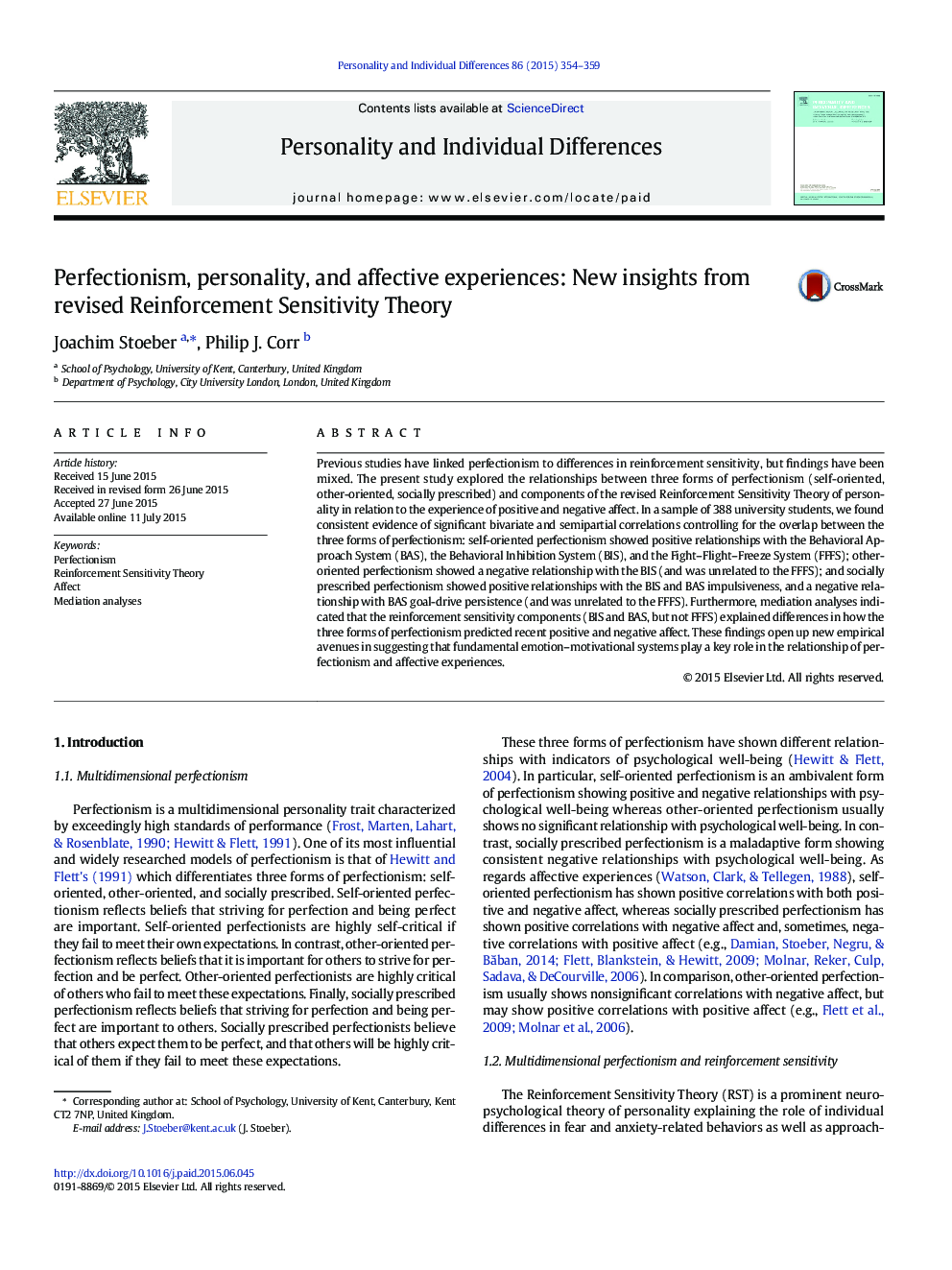| کد مقاله | کد نشریه | سال انتشار | مقاله انگلیسی | نسخه تمام متن |
|---|---|---|---|---|
| 890001 | 1472032 | 2015 | 6 صفحه PDF | دانلود رایگان |
• Perfectionism and revised Reinforcement Sensitivity Theory (rRST).
• We studied three forms of perfectionism, rRST factors, and affect.
• Unique relationships were found between perfectionism forms and rRST factors.
• rRST factors mediated the relationships between perfectionism and affect.
• New light is shed on the underlying dynamics of perfectionism.
Previous studies have linked perfectionism to differences in reinforcement sensitivity, but findings have been mixed. The present study explored the relationships between three forms of perfectionism (self-oriented, other-oriented, socially prescribed) and components of the revised Reinforcement Sensitivity Theory of personality in relation to the experience of positive and negative affect. In a sample of 388 university students, we found consistent evidence of significant bivariate and semipartial correlations controlling for the overlap between the three forms of perfectionism: self-oriented perfectionism showed positive relationships with the Behavioral Approach System (BAS), the Behavioral Inhibition System (BIS), and the Fight–Flight–Freeze System (FFFS); other-oriented perfectionism showed a negative relationship with the BIS (and was unrelated to the FFFS); and socially prescribed perfectionism showed positive relationships with the BIS and BAS impulsiveness, and a negative relationship with BAS goal-drive persistence (and was unrelated to the FFFS). Furthermore, mediation analyses indicated that the reinforcement sensitivity components (BIS and BAS, but not FFFS) explained differences in how the three forms of perfectionism predicted recent positive and negative affect. These findings open up new empirical avenues in suggesting that fundamental emotion–motivational systems play a key role in the relationship of perfectionism and affective experiences.
Journal: Personality and Individual Differences - Volume 86, November 2015, Pages 354–359
